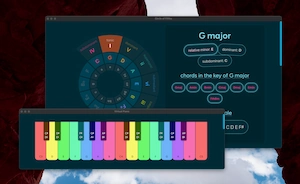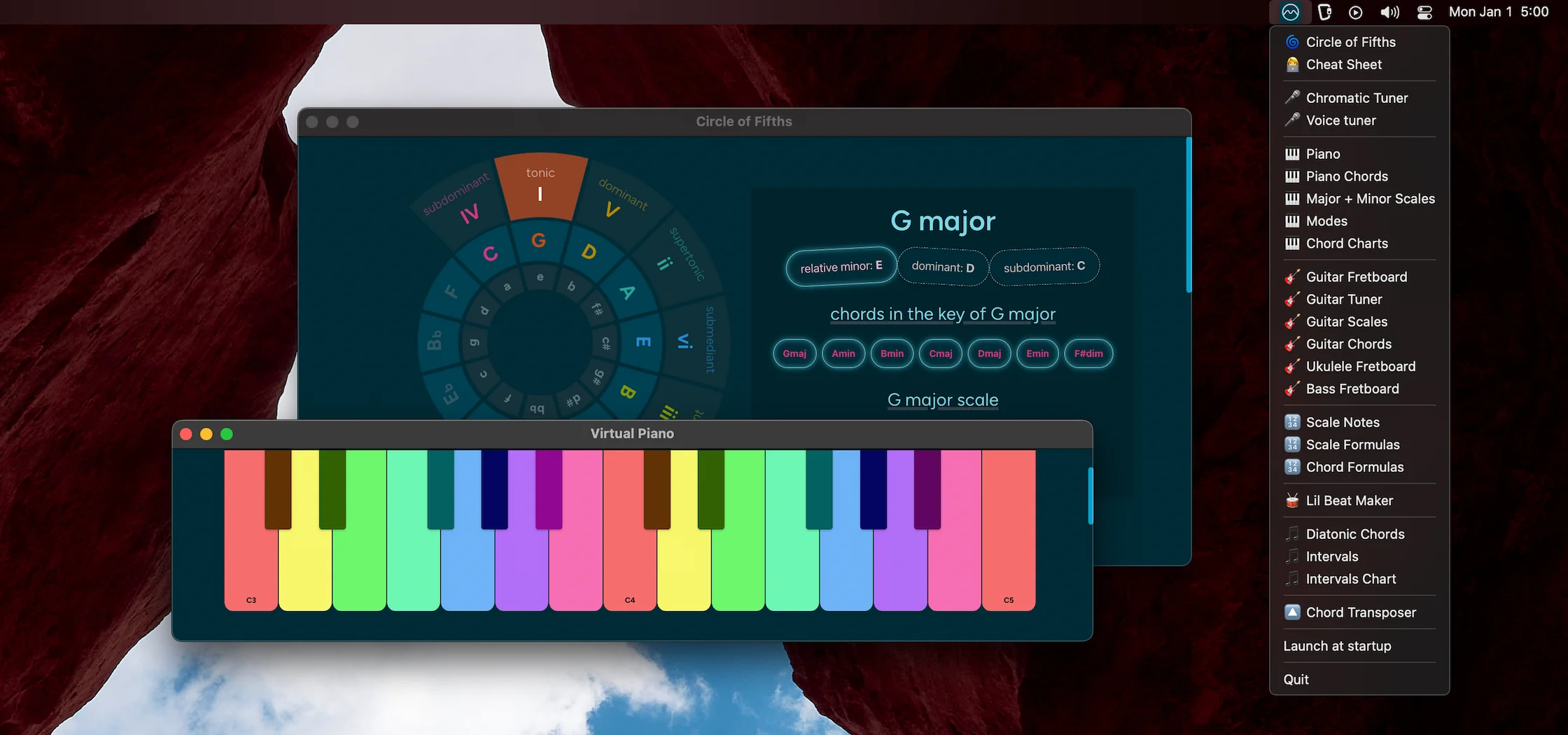Circle of Thirds: Visual Tool for Chords in Major or Minor Scales
In music theory, the Circle of Thirds is a visual tool that
helps us remember the order of thirds in a scale and hence the notes of the
chords in any given major or minor scale. The circle of thirds is not as
popular or versatile as the Circle of Fifths,
but it can still be a very useful tool.
The circle of thirds works because chords in music are built by stacking
thirds. For example, major chords are a major third and a minor third, minor
chords are a minor third and a major third and diminished chords are two minor
thirds.
The circle is formed by placing the notes of a major or minor scale in order
of 3rds instead of in their ascending order of
scale degrees.
By doing this, we are placing the notes of the scale in the following order of
scale degrees:
1-3-5-7-2-4-6. The order of natural notes will be
C-E-G-B-D-F-A, and then we can add the necessary
sharps or flats depending on the scale. When in another key than C, the order
won't start from C, but will still be the same overall order when seen as a
circle. For example, for A minor: A-C-E-G-B-D-F.
Select a Scale:
What Can We Use the Circle of Thirds For?
We can start from any of the notes in the circle to build triads or 7th chords. For example, if we start from E, we'll know that the triad is E G B and that the seventh chord is E G B D.
The Circle of Thirds for Reading Music Notation
On a music staff, every line is a third away distance from the next line, and every space is also a third away from the next space, so remembering the order of thirds allows us to quickly know which note goes with which line or space on the staff, no matter which clef is being used.
Here are two examples to illustrate this, where you can see that every line or space on the staff is just a third away from the next line or space:
Lines on the Staff

Spaces on the Staff

Mnemonic Devices to Remember the Order of the Circle of Thirds
A popular mnemonic device to remember the order of the circle of thirds is GBD FACE.
Here's another good one, which I learned from Rick Comiskey: Every Good Band Deserves Fans And Cash.



